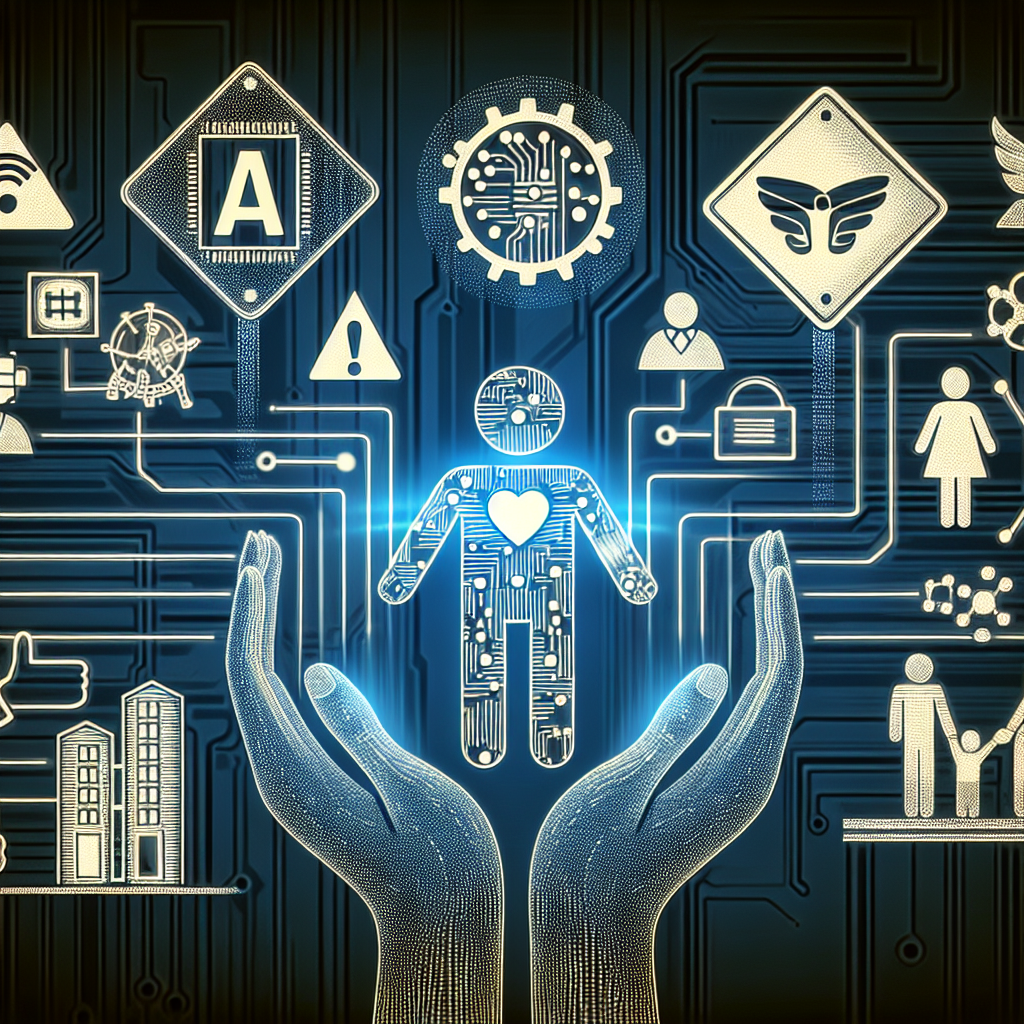Artificial Intelligence (AI) has been rapidly transforming various industries, including social services. AI has the potential to revolutionize the way social services are delivered, making them more efficient, effective, and accessible. However, with the benefits of AI come risks and challenges that need to be addressed to ensure that AI is used responsibly in the field of social services.
One of the main benefits of AI in social services is its ability to automate certain tasks, such as data analysis and case management. This can free up social workers’ time to focus on more complex and meaningful aspects of their work, such as building relationships with clients and providing personalized support. AI can also help social services organizations to better allocate resources, identify trends and patterns in data, and improve decision-making processes.
AI can also enhance the quality of services provided to clients by enabling more personalized and tailored interventions. For example, AI can analyze a client’s data and provide insights into their needs and preferences, allowing social workers to provide more targeted and effective support. AI can also help to identify at-risk individuals and intervene early before problems escalate, ultimately improving outcomes for clients.
Despite the potential benefits of AI in social services, there are also risks and challenges that need to be addressed. One of the main concerns is the potential for bias and discrimination in AI algorithms. If AI systems are trained on biased data or programmed with biased assumptions, they may perpetuate or even exacerbate existing inequalities and injustices in social services. For example, AI algorithms that are trained on historical data may reflect and reinforce discriminatory practices, leading to unfair treatment of certain groups of people.
Another risk is the potential for AI to infringe on privacy and data protection rights. Social services organizations collect and store sensitive information about clients, and AI systems that process this data must do so in a way that respects individual privacy and confidentiality. There is also a risk that AI systems may be vulnerable to hacking or misuse, leading to data breaches and security breaches that could harm clients and undermine trust in social services.
Furthermore, there is a concern that AI may replace human judgment and empathy in social services, leading to a dehumanization of the field. While AI can automate certain tasks and improve efficiency, it cannot replace the human connection and understanding that social workers provide to their clients. It is important to strike a balance between using AI to enhance social services and preserving the human touch that is essential to the field.
To address these risks and challenges, social services organizations must take a proactive approach to responsible AI use. This includes ensuring that AI systems are designed and implemented in a way that is ethical, transparent, and accountable. Organizations should also regularly monitor and evaluate the impact of AI on their services, and be prepared to make adjustments or corrections as needed. Additionally, organizations should prioritize diversity and inclusion in AI development and deployment to mitigate the risk of bias and discrimination.
In conclusion, AI has the potential to transform social services for the better, but it also comes with risks and challenges that need to be addressed. By taking a responsible approach to AI use, social services organizations can harness the power of AI to improve outcomes for clients while upholding ethical standards and protecting individual rights.
FAQs:
Q: How can AI improve social services?
A: AI can improve social services by automating tasks, analyzing data to identify trends and patterns, providing personalized interventions, and enhancing decision-making processes.
Q: What are the risks of using AI in social services?
A: Risks of using AI in social services include bias and discrimination, privacy and data protection concerns, dehumanization of the field, and potential vulnerabilities to hacking and misuse.
Q: How can social services organizations address the risks of using AI?
A: Social services organizations can address the risks of using AI by taking a proactive approach to responsible AI use, ensuring ethical, transparent, and accountable AI systems, monitoring and evaluating the impact of AI on services, and prioritizing diversity and inclusion in AI development and deployment.

